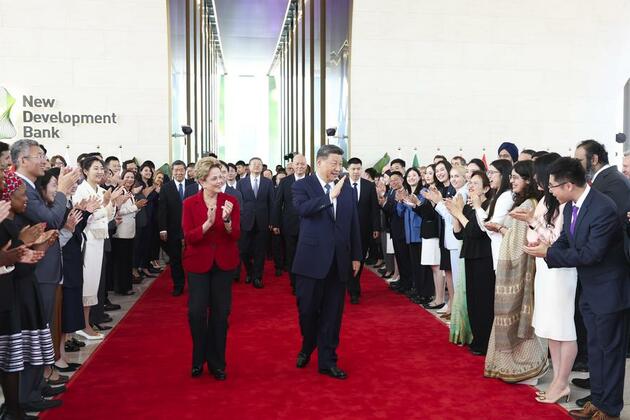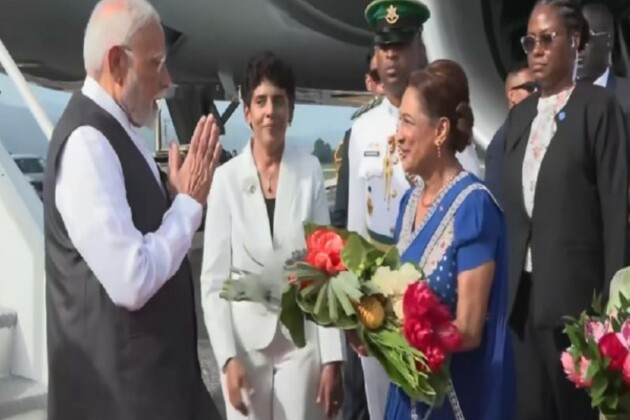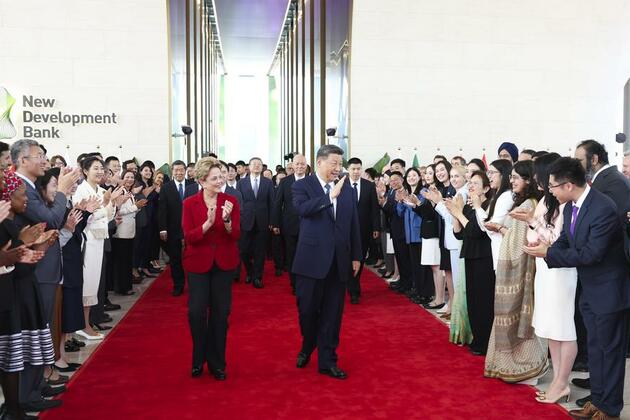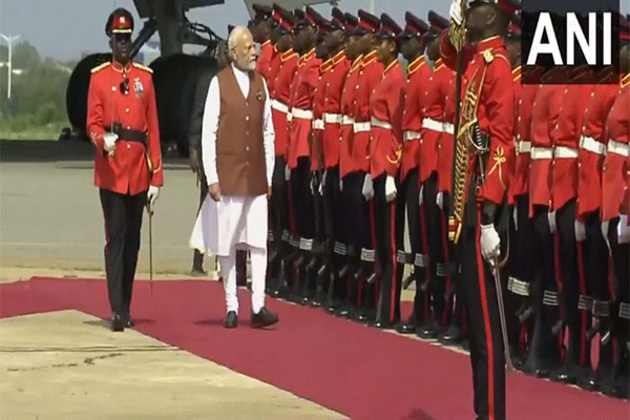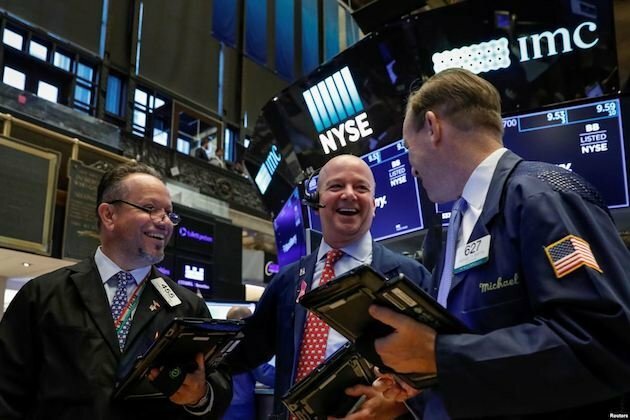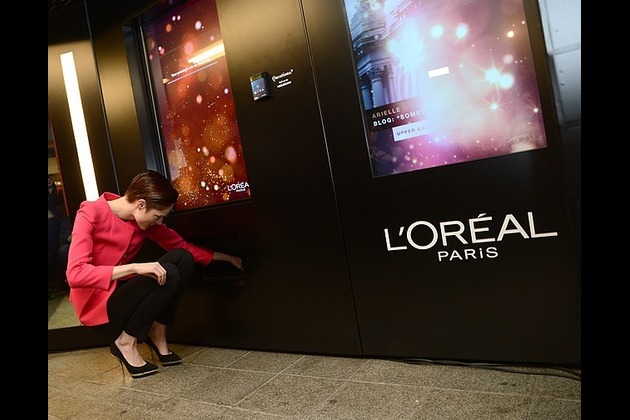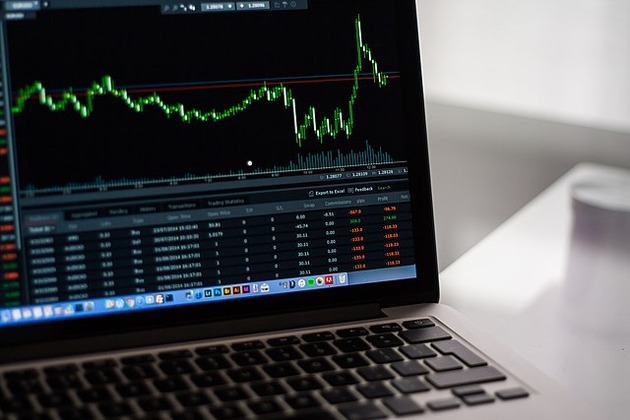Why the Treaty Banning Nuclear Weapons Makes a Difference
Pressenza
22 Jan 2021, 15:57 GMT+10
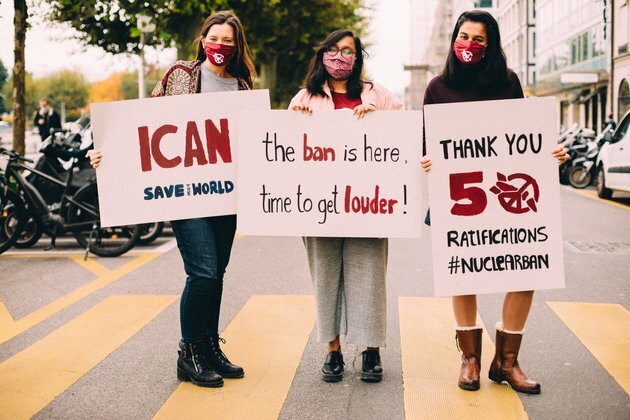
The Treaty for the Prohibition of Nuclear Weapons (TPNW) goes into effect on January 22, 2021. Most Americans haven't heard of it. It's a treaty that prohibits the developing, testing, possessing, using, threatening to use, or storing of nuclear weapons. Critics say the treaty is pointless because it only applies to the countries that signed it and none of the nuclear-armed states are signing on. But the Treaty for the Prohibition of Nuclear Weapons is important and will have a critical impact.
Not because it will force countries to retire nuclear weapons, but because it will change the way people think about nuclear weapons.
How people think matters when it comes to nuclear weapons because nuclear weapons are the most important military symbol in the world today. They are the international currency of power. Currencies of power are types of weapons that are taken to be symbols of national strength. Battleships, for example, were the currency of power at the turn of the twentieth century. In the medieval world, heavily-armored mounted knights were the currency of power. Currencies of power bring prestige to their owners, they often incite arms races, and people tend to use them as a rough guide to a nation's strength. Want to know how powerful a country is? In the early 1900s, you count the number of battleships; today we count nuclear weapons.
We don't often think of them that way, but nuclear weapons are actually two things at once. They are both military weapons designed to explode, and symbols designed to impress, awe, and deter. Nuclear weapons work in the everyday world of experiences. Symbols work only inside peoples' heads.
Most ordinary people rarely give the military aspect of nuclear weapons serious thought. They couldn't tell the difference between a SLBM and an ALCM, would be unable to do realistic calculations of strategic damage, much less have accurate ideas of how many weapons the world's various powers possess. Without ever having measured, I am confident that there are more Americans today who could explain the attacking style of Barcelona's soccer team (much less the various offensive weapons at the disposal of the Kansas City Chiefs) than could describe the United States' nuclear arsenal in any detail. For them, nuclear weapons are mental images of giant clouds, vague notions of "the most" destruction, an awed tone of voice when the subject comes up, and harbingers of the end of the world. For most Americans, nuclear weapons are far more symbol than reality. And for those people - for people who only know nuclear weapons as symbols - the TPNW will come as a shock.
If you have always been told that everyone really wants nuclear weapons, and if you have come to think of them as the most desirable weapon in existence, you will be dumfounded to hear that 122 countries voted for the treaty, that eighty have signed it, and that fifty have ratified it. Who in their right mind could not want the most powerful weapon ever? Some people, no doubt, will dismiss those fifty nations with the thought that all foreigners are crazy. But for some, the TPNW will challenge important assumptions they have accepted for years. It will set up a cognitive dissonance, like a clanging in their heads, that will trouble them. For some, it will lead them to try to find out more - to resolve this mystery of how some nations could not want the "most powerful weapons ever."
And that is the power of the TPNW. It will challenge old assumptions. It will create uncomfortable mental contradictions. It will plant seeds of doubt. It might even cause people to reevaluate.
Important ideas and assumptions about nuclear weapons have lain largely unchallenged since the Cold War - beliefs about the importance and influence of nuclear weapons that have been taken for granted since Truman or Ike or Herman Kahn first articulated them. The power of the TPNW is not in the practical changes it makes in the world. The power of it lies in the way it will serve as a catalyst for new and perhaps surprising thoughts.
If the comfortable certainty that "everyone wants nuclear weapons" is not true, perhaps there are other assumptions from the Cold War that are not true. Perhaps it makes sense to look more closely at the "can't disinvent nuclear weapons" argument? Maybe it's time to explore how a weapon that appears to be so militarily useless (if it were useful, wouldn't it have been used?) could be thought of as vital to security?
The TPNW is powerful because it is undeniable proof that at least one of the core assumptions of the Cold War was wrong. It will force some of us here in the United States to rethink our beliefs. And rethinking is a slippery process. Once you start to question core beliefs, who knows where it will end?
 Share
Share
 Tweet
Tweet
 Share
Share
 Flip
Flip
 Email
Email
Watch latest videos
Subscribe and Follow
Get a daily dose of Brazil Sun news through our daily email, its complimentary and keeps you fully up to date with world and business news as well.
News RELEASES
Publish news of your business, community or sports group, personnel appointments, major event and more by submitting a news release to Brazil Sun.
More InformationSouth America
SectionXi pushes for Global South modernization via practical cooperation
BEIJING, July 4 (Xinhua) -- Ahead of Chinese President Xi Jinping's state visit to Brazil late last year, the Portuguese edition of...
Xi's long-standing commitment to Global South development
BEIJING, July 4 (Xinhua) -- On the banks of the shimmering Huangpu River that cuts through the Chinese metropolis of Shanghai sits...
PM Modi receives Guard of Honour in Trinidad and Tobago, welcomed by Caribbean nation's PM, 38 Ministers and 4 MPs
Port of Spain [Trinidad and Tobago], July 4 (ANI): Prime Minister Narendra Modi began his first official visit to Trinidad and Tobago...
Xi Jinping champions the cause of Global South
by Xinhua writer Jiang Hanlu BEIJING, July 3 (Xinhua) -- On the banks of the shimmering Huangpu River that cuts through the Chinese...
Minakshi, Pooja Rani assure India of two medals on Day 3 at World Boxing Cup Kazakhstan
Astana [Kazakhstan], July 2 (ANI): Minakshi (48kg) and Pooja Rani (80kg) guaranteed India two medals on Day 3 of the World Boxing Cup-Astana,...
PM Modi arrives in Ghana, receives guard of honour and 21-gun salute
Accra [Ghana], July 2 (ANI): Prime Minister Narendra Modi arrived in Ghana on Wednesday, marking the start of his five-nation tour....
Business
SectionGrammarly acquires Superhuman to boost AI workplace tools
SAN FRANCISCO, California: Grammarly is doubling down on AI-powered productivity tools with the acquisition of Superhuman, a sleek...
Standard and Poor's 500 and and Nasdaq Composite close at record highs
NEW YORK, New York -U.S. stock markets closed with broad gains on Thursday, led by strong performances in U.S. tech stocks, while European...
Persson family steps up H&M share purchases, sparks buyout talk
LONDON/STOCKHOLM: The Persson family is ramping up its investment in the H&M fashion empire, fueling renewed speculation about a potential...
L'Oreal to buy Color Wow, boosts premium haircare portfolio
PARIS, France: L'Oréal is making a fresh play in the booming premium haircare segment with a new acquisition. The French beauty conglomerate...
Robinhood launches stock tokens for EU investors, adds OpenAI
MENLO PARK, California: Robinhood is giving European investors a new way to tap into America's most prominent tech names — without...
Wall Street diverges, but techs advance Wednesday
NEW YORK, New York - U.S. stocks diverged on Wednesday for the second day in a row. The Standard and Poor's 500 hit a new all-time...


